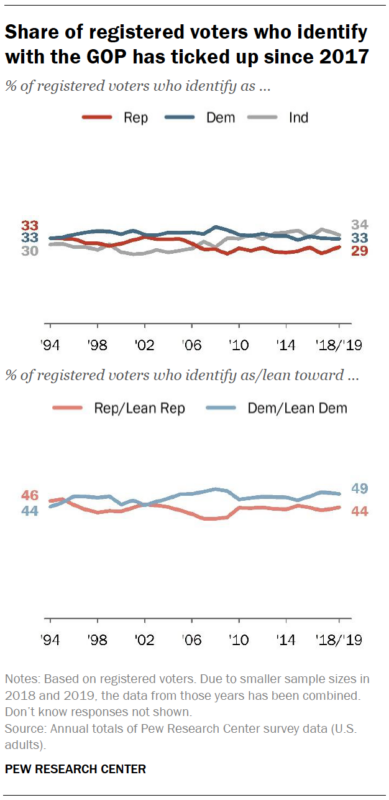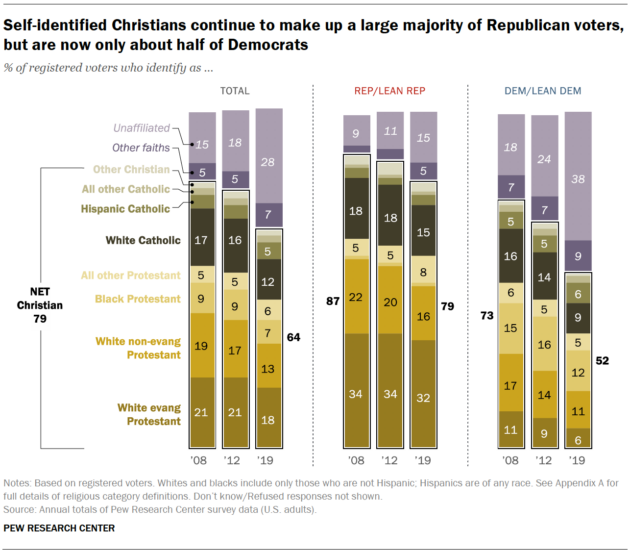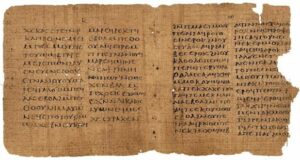The U.S. religious landscape has undergone profound changes in recent years, with the share of Christians in the population continuing to decline, according to the Pew Research Center.
 Today, Christians make up about half of Democratic voters (52 percent); in 2008, about three-quarters of Democrats (73 percent) were Christians. The share of Democratic voters who are religiously unaffiliated has approximately doubled over this period (from 18 percent to 38 percent). The changes among Republicans have been far more modest: Christians constitute 79 percent of Republican voters, down from 87 percent in 2008.
Today, Christians make up about half of Democratic voters (52 percent); in 2008, about three-quarters of Democrats (73 percent) were Christians. The share of Democratic voters who are religiously unaffiliated has approximately doubled over this period (from 18 percent to 38 percent). The changes among Republicans have been far more modest: Christians constitute 79 percent of Republican voters, down from 87 percent in 2008.
Partisanship has become increasingly tied to religious identification over the past quarter century. White evangelical Protestants have seen one of the largest moves toward the GOP over the past 25 years. In 1994, 61 percent of white evangelical Protestant voters leaned toward or identified with the Republican Party, while 31 percent leaned toward or identified with the Democratic Party. Today, the GOP has opened up an overwhelming 78 percent to 17 percent advantage among white evangelicals, making them the most solidly Republican major religious grouping in the country.
The GOP holds somewhat narrower advantages in leaned party identification among white non-evangelical Protestants (54 percent to 39 percent) and white Catholics (57 percent to 38 percent). Both groups of voters have moved toward the Republican Party over time, though the shift has been more pronounced among white Catholics. Hispanic Catholics stand out from their white counterparts in their association with the Democratic Party. Roughly two-thirds of Hispanic Catholics (68 percent) identify with or lean toward the Democratic Party. The partisan leanings of Hispanic Catholics have not changed much in recent years.
Among those who do not affiliate with an organized religion, 67 percent identify with or lean to the Democratic Party, compared with just 24 percent who identify or lean toward the GOP. Religiously unaffiliated voters have been trending steadily toward the Democratic Party over the past few decades and represent a growing share of all registered.
–Alan Goforth | Metro Voice
 Metro Voice News Celebrating Faith, Family & Community
Metro Voice News Celebrating Faith, Family & Community 








